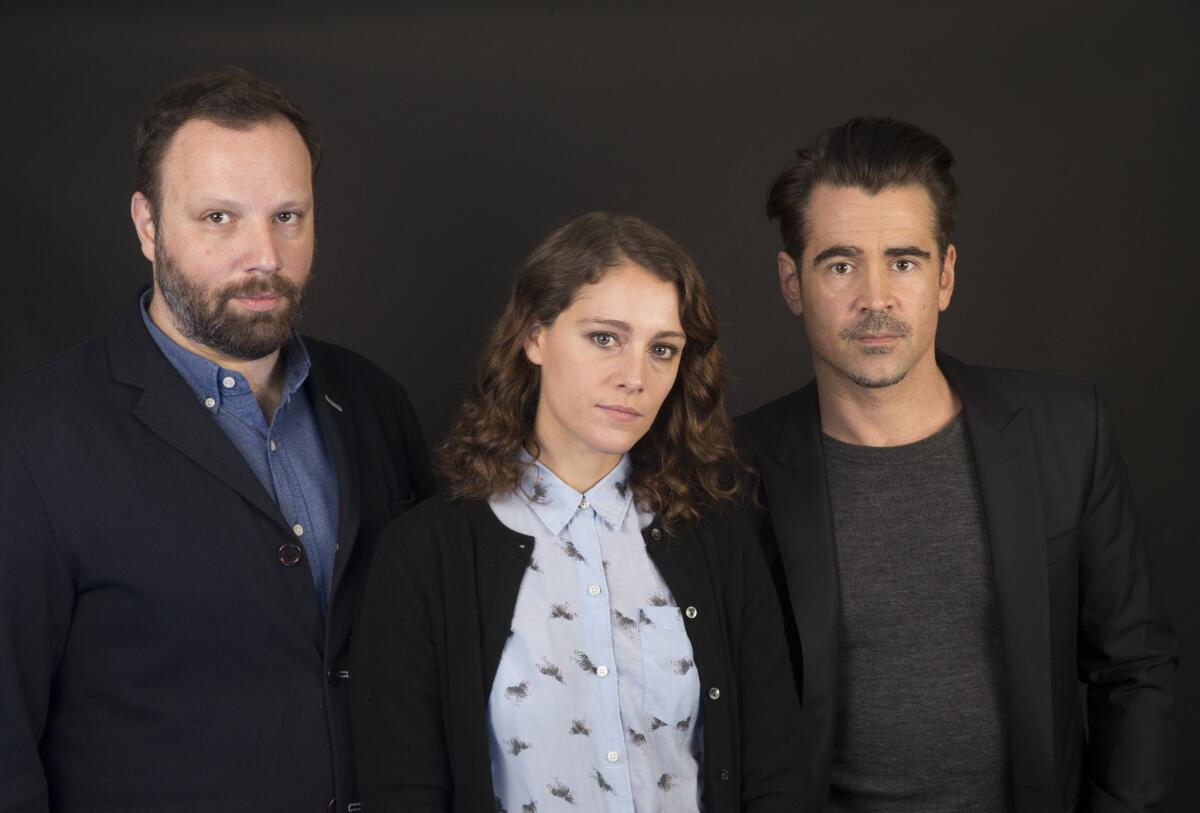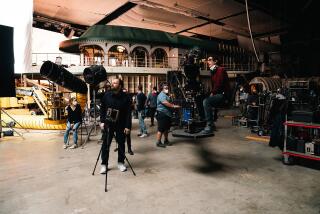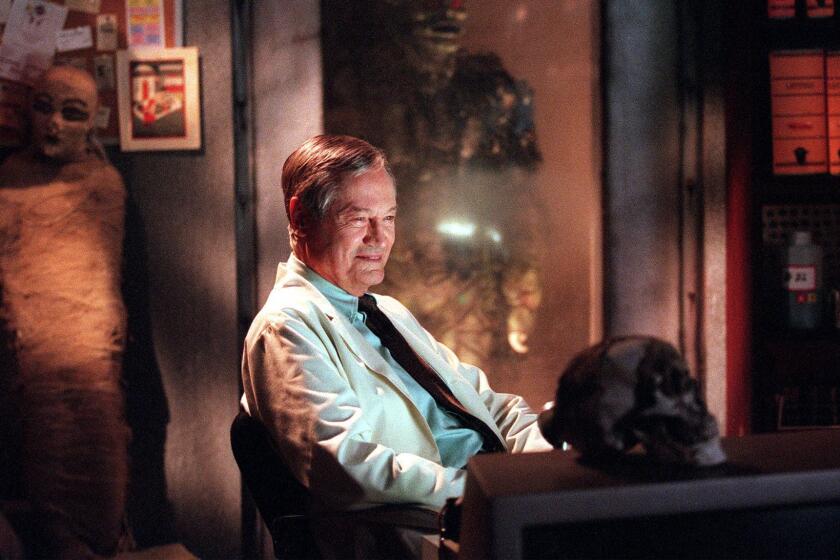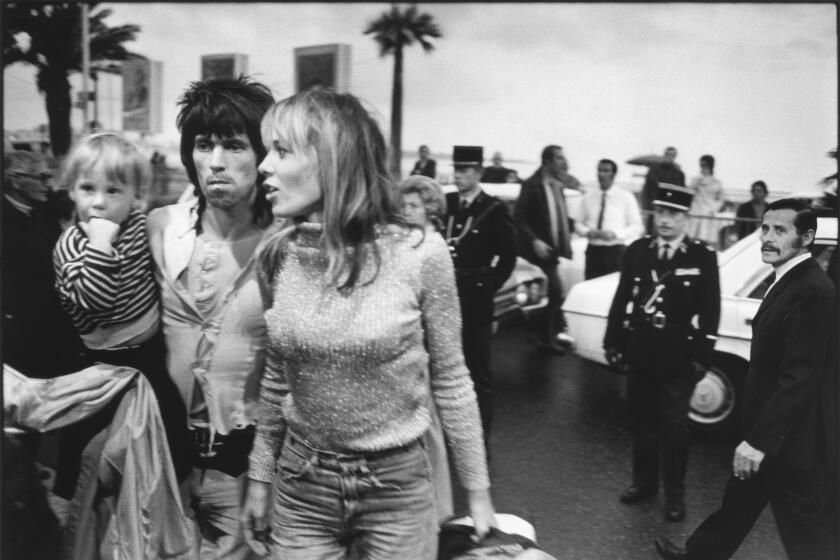Newsletter: Indie Focus: Worlds of absurdity and emotion in ‘The Lobster,’ ‘High-Rise’ and ‘Love & Friendship’
Hello! I’m Mark Olsen, and welcome to your weekly field guide to a world of Only Good Movies.
This week we look at three of my favorite movies of the year so far, plus an extremely exciting retrospective discovery. It’s such a crowded week of strong new films that even last year’s Palme d’Or winner at Cannes — Jacques Audiard’s “Dheepan” — might feel slightly pushed aside. Audiard is one of the sharpest, most charming filmmakers at work today, and I’ll be publishing an interview with him soon.
I’m going on a pre-summer holiday to an undisclosed location, so the newsletter will be on hiatus for the next two weeks. But that doesn’t mean the movies stop too. Keep an eye out for “Maggie’s Plan,” “The Nice Guys,” “Weiner,” and “Chevalier.”
And we’ll have some more exciting screening/Q&A events coming up soon. Check events.latimes.com for more info.
Nonstop movies. Movies nonstop.

‘The Lobster’
Greek filmmaker Yorgos Lanthimos makes his English-language debut with “The Lobster,” starring Colin Farrell and Rachel Weisz in an allegory of relationships. In the film, which also costars John C. Reilly, Ariane Labed, Ben Whishaw and Léa Seydoux, people must either be in a couple or are turned into the animal of their choosing. It’s bold, funny, emotional, unsettling and more than a bit brilliant.
In his review for The Times, Justin Chang wrote, “It’s a wondrously silly premise, and one that Lanthimos, not unlike those great cine-surrealists Luis Buñuel and Charlie Kaufman before him, executes with rigorous illogic and immaculate formal control.”
In the New York Times, A.O. Scott noted, “The Greek filmmaker Yorgos Lanthimos is a deadpan dystopian comedian, an inventor of absurd, highly regulated societies that seem to exist in hidden pockets of everyday reality.” Scott also declared the film perhaps Lanthimos’ “masterpiece thus far.”
At MTV, Amy Nicholson adds, “‘The Lobster,’ as bizarre as it is, hits on something true. Here, movie love is mandatory, not magical, and Lanthimos shows us the arbitrary reasons people convince themselves they belong together, and the tiny compromises that come next. Instead of a happy ending, we’re left with a question I haven’t stopped thinking about since: What would we give up for someone else — and is it worth it?”
I spoke to Lanthimos, Farrell, Weisz, Reilly and Labed for a story on the mysteries of the movie itself and on the challenges of making a movie so open to interpretation. Few filmmakers answer “I don’t know” as much as Lanthimos.
“I think you do this kind of work because you have some questions,” Lanthimos said. “And the films that we made we tried to structure in a way that they are very open and people can experience them in different ways according to who they are. I can give you an answer, but that’s going to be as valid as someone else’s answer.”
‘High-Rise’
Ben Wheatley is another filmmaker from the festival circuit who just gets better and better. “High-Rise” is an adaptation of the J.G. Ballard novel set amidst an apartment building that becomes a dystopian society all its own, starring Tom Hiddleston, Luke Evans, Sienna Miller, Jeremy Irons and Elisabeth Moss. There’s also an astonishing cover of ABBA’s “S.O.S.” by the group Portishead that they have vowed will remain available only within the film itself. And it alone is worth the price of admission.
In his review in The Times, Justin Chang said, “For Wheatley, the repugnance and monstrosity of the human condition demand to be not explained, but accepted — and once accepted, embraced. ‘High-Rise’ is a stubborn, incoherent wreck of a movie, and I mean that as fairly high praise. You won’t follow everything that happens, but you may feel weirdly at home.”
I wrote about the film ahead of its world premiere at last fall’s Toronto International Film Festival, talking to Wheatley, producer Jeremy Thomas and composer Clint Mansell. I also received one of the most well-written emails I’ve ever read from Hiddleston.
“Ballard used to say he wasn’t writing about who we are, but about who we might become,” Hiddleston wrote. “He said his books are like a roadside warning on a highway, as if to say: ‘Caution: bends ahead.’”
‘Love & Friendship’
We’ve already professed here how much we enjoy the droll, dry films of Whit Stillman, and his latest, “Love & Friendship,” is another sparkling gem. The film is an adaptation of Jane Austen’s relatively little-known “Lady Susan” and it is just a delight to see the sensibilities of Austen and Stillman come together. They are a perfect fit, both keenly aware of the minutiae of social maneuvering and interpersonal gamesmanship. The film also slyly reunites actresses Kate Beckinsale and Chloë Sevigny from Stillman’s “The Last Days of Disco”
In his review for The Times, Glenn Whipp noted, “‘Love & Friendship’ more than delivers on the comedy of manners front, but it’s also a very funny, unapologetic portrait of a diabolically clever woman.”
In the Village Voice, Bilge Ebiri spoke to Stillman, who said of the story’s appeal, “It’s a thing we like in period films and Austen: the idea of a whole society that has texture, a unity of connections.”
Our own Rebecca Keegan spoke to Beckinsale recently, and it’s an engaging read, touching on ideas of how audiences pigeonhole performers and what those performers can do to play with our perceptions of them. Of her role in “Love & Friendship,” Beckinsale said.
“I’ve always loved broads, the kind of women Bette Davis and Barbara Stanwyck played,” she said. “A woman at the height of her maturity, power, intellect and sexuality. It’s kind of a cool moment in a woman’s life, and I feel like it’s not valued as much as it should be.”
‘Belladonna of Sadness’
One of the most exciting things happening right now in contemporary film culture is the rediscovery of films that, for whatever reason, were unacknowledged in their day and are now getting another moment with audiences. I really appreciate that our understanding of film history is not a fixed thing and that there are always new films to discover, even from the past.
Directed by Eiichi Yamamoto, the 1973 animated Japanese film “Belladonna of Sadness” is just such a movie and is now getting its first American theatrical release. It manages to be both delicate and extreme, a genuinely unique experience.
In the New York Times, Glenn Kenny wrote, “To summarize this film is to present a solid argument that it’s one of the most unusual ever made … a 1973 Japanese erotic animated musical inspired by the 19th century French historian Jules Michelet’s account of witchery in the Middle Ages. ...
“‘Belladonna of Sadness’ is compulsively watchable, even at its most disturbing: The imagery is frequently graphic, and still, after over 40 years, it has the power to shock.”
In Rolling Stone, Jason Newman explained the story behind the film and its restoration. But for anyone in need of a warning, take note: “Asked how he would describe the film to someone who’s never seen it, ‘Belladonna’ artist Kuni Fukai’s answer is swift: ‘To not watch it with your family.’”
In LA Weekly, April Wolfe explored the Los Angeles connections behind the restoration, presented by Cinelicious Pics, SpectreVision and the Cinefamily.
“For fans of bizarre cinema, groundbreaking animation and all the glorious things our technology can do, ‘Belladonna of Sadness’ is a classic with a second life thanks to some good old L.A. ingenuity.”
Email me if you have questions, comments or suggestions, and follow me on Twitter @IndieFocus.
More to Read
Only good movies
Get the Indie Focus newsletter, Mark Olsen's weekly guide to the world of cinema.
You may occasionally receive promotional content from the Los Angeles Times.







